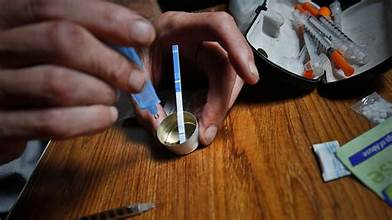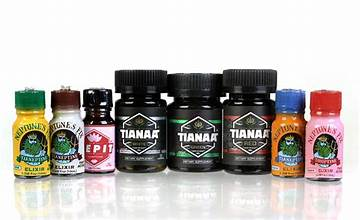The U.S. Food and Drug Administration (FDA) has issued a strong warning to the public about tianeptine, an unapproved drug commonly referred to as “gas station heroin”. The FDA is urging consumers to stop using products containing tianeptine immediately, due to serious health risks including addiction, overdose, and even death.
Tianeptine is not approved for medical use in the United States, but it is being sold in gas stations, online stores, and convenience shops under brand names like Zaza, Tianna Red, and others. Despite being marketed as a dietary supplement or mood enhancer, tianeptine has opioid-like effects and has become increasingly popular among those looking for legal ways to get high.
“Tianeptine is dangerous. People think it’s safe because it’s sold legally in places like gas stations, but it acts like opioids and can be deadly,” the FDA stated in its recent consumer alert.
What Is Tianeptine?
Tianeptine is a chemical substance originally developed as an antidepressant in some European, Asian, and Latin American countries. However, it is not approved for any medical use by the FDA in the United States. In the U.S., tianeptine is often sold illegally and mislabeled as a dietary or nootropic supplement.

Despite claims that it improves mental focus or helps with anxiety, tianeptine acts on the brain in a similar way to opioids, leading to potential dependence, withdrawal symptoms, and overdose.
Why Is It Called ‘Gas Station Heroin’?
Tianeptine earned the nickname “gas station heroin” because of the way it mimics the effects of opioids, such as heroin, but is often sold legally at gas stations. This nickname is misleading and dangerous, as it implies casual availability and low risk, when in reality, the drug poses serious health threats.
According to reports from various state health departments, tianeptine has led to a rising number of emergency room visits, including cases of severe withdrawal, loss of consciousness, confusion, and rapid heartbeat.
FDA’s Action and Public Health Concern
In February 2025, the FDA issued an official warning urging people to avoid tianeptine-containing products. The agency has also sent warning letters to companies selling the drug illegally online and in retail stores.
“We’re committed to removing unsafe and illegal products from the market,” said FDA Commissioner Dr. Robert M. Califf. “Consumers deserve to know what they’re putting in their bodies, and tianeptine is not safe.”
As part of their effort, the FDA has also asked for help from local law enforcement and health agencies to track the sale of tianeptine across the country.
Reported Health Risks from Tianeptine

People using tianeptine have reported:
- Severe withdrawal symptoms
- Respiratory depression
- Seizures
- Loss of consciousness
- Hallucinations
- Increased risk of overdose when combined with alcohol or other drugs
The Centers for Disease Control and Prevention (CDC) has also noted a sharp increase in poison control center calls related to tianeptine in recent years.
According to the National Institute on Drug Abuse (NIDA), tianeptine abuse has spread especially among younger adults and those with a history of substance use, further complicating the already ongoing opioid crisis in the United States.
Legal Status and Enforcement Efforts
While tianeptine is banned in several states, including Michigan, Alabama, and Tennessee, it is still widely available online and in retail stores not subject to strict drug regulations.
In response, several states are now reviewing legislation to include tianeptine in their list of controlled substances. The FDA continues to work with lawmakers to tighten regulations and protect consumers.
What Should Consumers Do?

The FDA advises the following:
- Do not purchase or consume any product labeled with tianeptine
- Report any side effects or illegal sales to the FDA’s MedWatch program: https://www.fda.gov/medwatch
- Seek immediate medical help if you or someone you know is experiencing symptoms after using the drug
- Check with licensed health professionals before using any supplement, especially those that claim to improve mood or focus
For more information, visit the FDA’s safety alert on tianeptine: https://www.fda.gov/drugs/drug-safety-and-availability/fda-warns-about-serious-risks-tianeptine
Final Thoughts
Tianeptine’s growing presence in gas stations and online stores is a serious public health concern. While it may appear to be a harmless supplement, the truth is far more dangerous. With effects similar to opioids and an increasing number of emergency incidents tied to its use, tianeptine is a silent threat lurking in everyday places.
The FDA’s latest warning is a critical step toward awareness and prevention, but it’s up to consumers, parents, and communities to stay informed and alert.
Suggestions
- FDA Official Tianeptine Safety Alert
- National Institute on Drug Abuse (NIDA) – Tianeptine Overview
- CDC – Poisoning and Substance Use Data
- MedWatch: FDA Safety Information and Adverse Event Reporting Program
Also Read – Americans Hate Health Care: Trump’s New Plan May Worsen It






